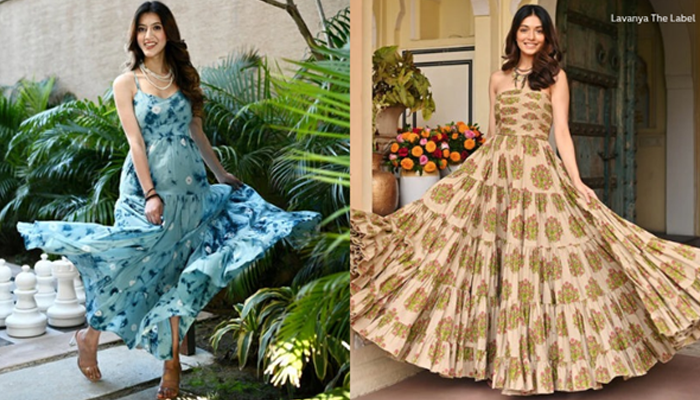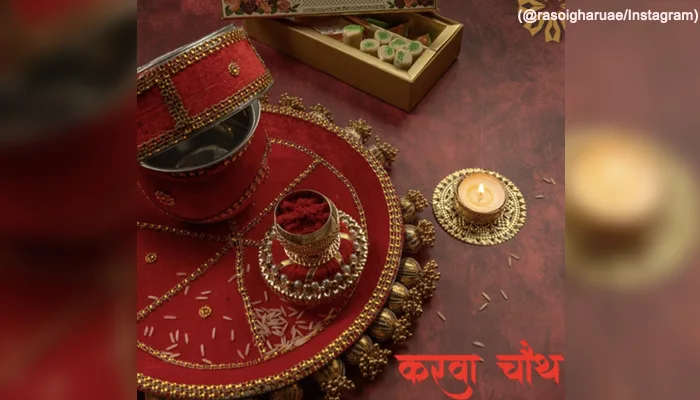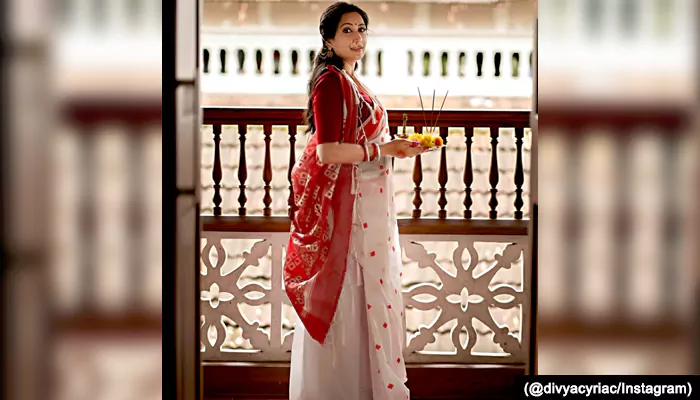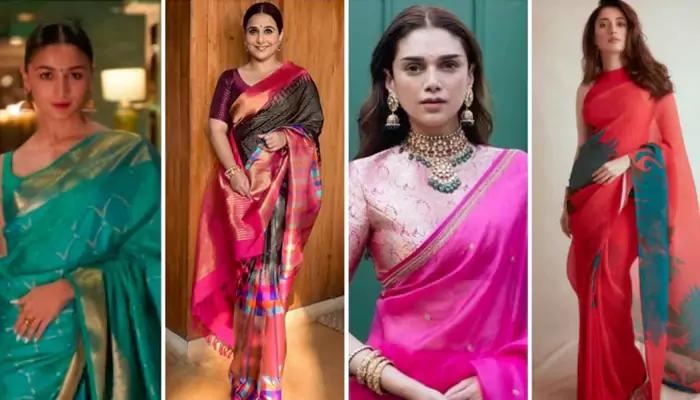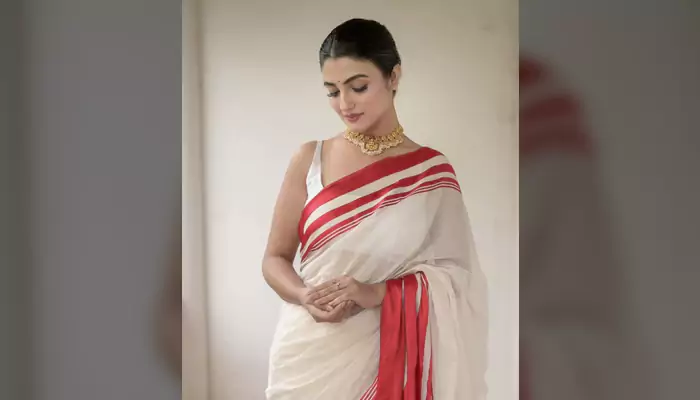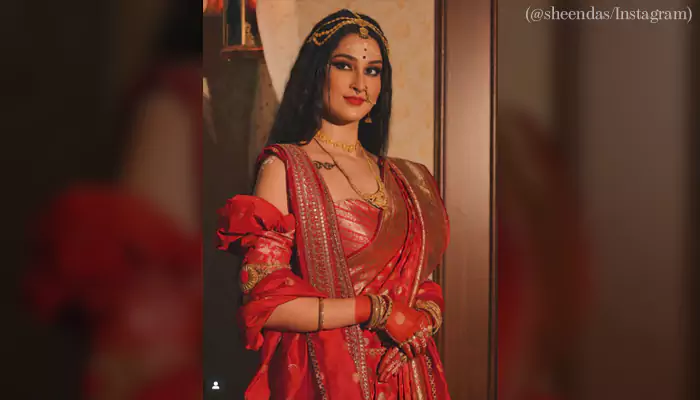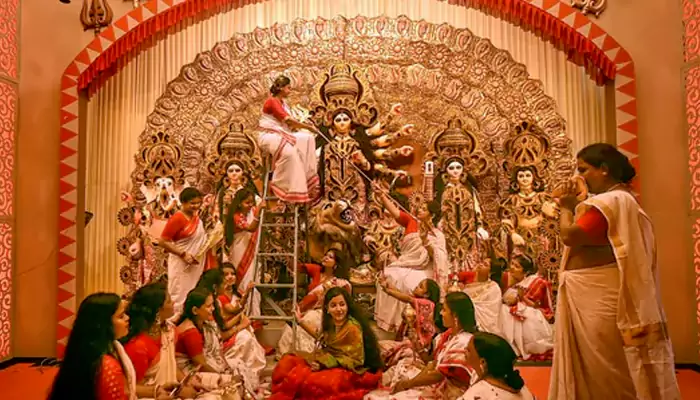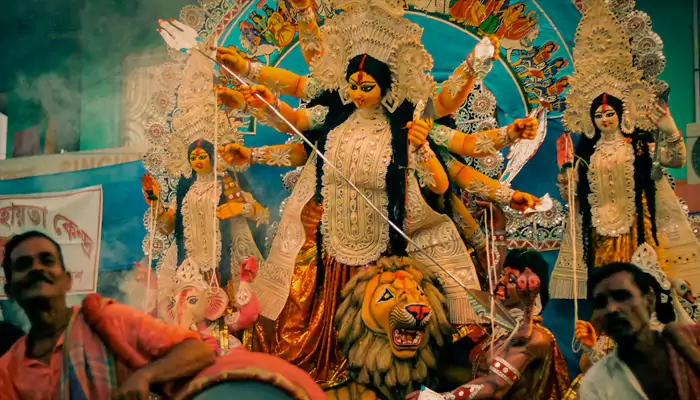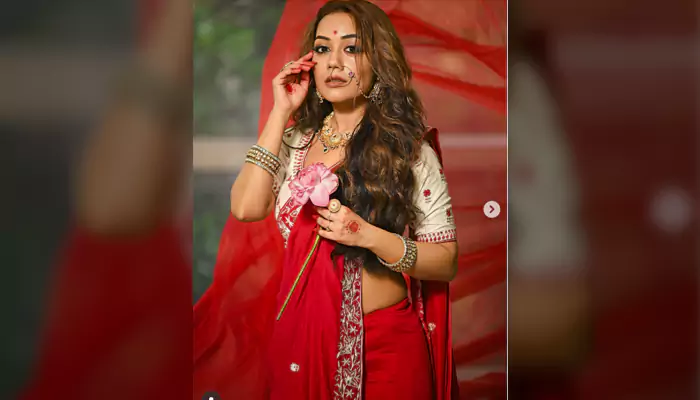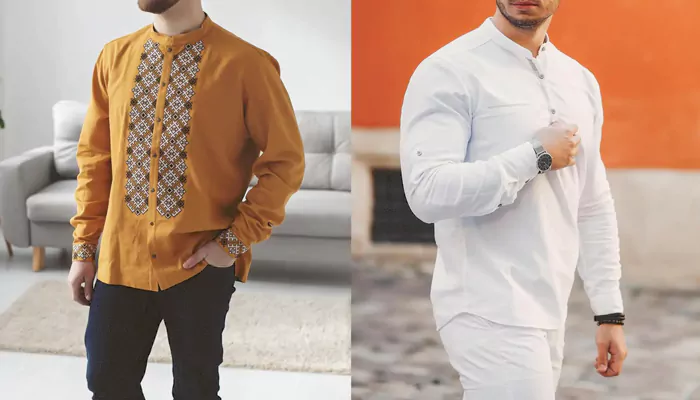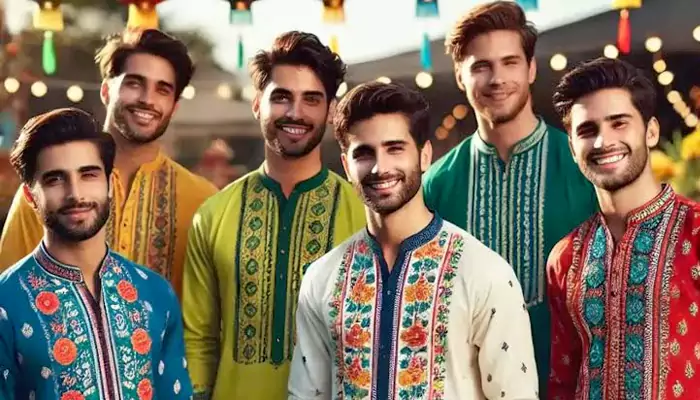Real Versus Fake Chikankari: Spot The Difference Between Handcrafted And Machine-made Chikankari Designs
- Satavisha
- 1 year ago
- 4 minutes read

In the modern era of mass production, spotting the difference between authentic handcrafted Chikankari and its cheaper machine-made counterfeit alternatives can be daunting.
In Indian fashion, very few traditional styles incorporate the exquisite craftsmanship and lavish cultural heritage of Chikankari. Born in the city of Lucknow, Uttar Pradesh—this age-old embroidery technique has admirers all over the world. However, the surging demand for Chikankari fabric has resulted in the production of machine-made imitations.
We are here to share valuable tips and tricks to help you identify original Chikankari outfits, to make sure you invest in authentic handcrafted treasures.
Types of Stitches in Chikankari
No machine can accurately replicate the look of Chikankari. Handcrafted Chikankari embroidery consists of 32 unique stitches and the 5 basic stitches include phanda-small circular dot, tepchi—the running stitch, jaali, bakhia and murri. These stitches help create the popular shadow effect.
Thread Used for Chikankari Embroidery
Traditionally, Chikankari embroidery is done with cotton threads. However, in some cases, resham (silk) threads can also be used to offer luxurious, super-fine finishes. The local artisans use fine threads—like silk, silver and golden zari to create exquisite designs. On the other hand, machine-made counterfeit garments use low-quality threads and poor fabrics.
Look for Handcrafted Imperfections
Original Chikankari embroidery is entirely crafted manually by skilled artisans. Every stitch is crafted meticulously by hand, creating irregular and unique patterns that amplify its charm. Since authentic Chikankari is handcrafted, look for minor irregularities in the designs, as imperfections are inevitable in every manual art form. These minor flaws and imperfections add to its unique charm.

Feel the Fine Fabric
Chikankari is always crafted on premium, lightweight fabrics such as cotton, muslin, or georgette. Feel the fabric to check if it is breathable and soft, allowing the detailed embroidery to shine.
Check the Precision of Threadwork
Genuine Chikankari embroidery is characterised by evenly-spaced and fine stitches, created by seasoned artisans. However, counterfeit products often exhibit rushed or uneven threadwork, showcasing a lack of expertise.
Look for Subtle Elegance
Traditional Chikankari designs exude an understated elegance. Search for intricate motifs such as florals, paisleys, and delicate geometric patterns neatly embroidered with white thread, generating a soft contrast against the fabric.
Use of Natural Dyes
Original Chikankari designs are made on garments dyed with natural colours that impart a muted, soft colour palette. So, if the fabric of the garment appears synthetic or too bright, you should be concerned about its authenticity.
Examine the Reverse Side Detailing
One of the most suggestive signs of the original Chikankari is the tidiness of the garment’s reverse side. Genuine embroideries are characterised by clean and neat backstitches, displaying the artisan's attention to detail and finesse.
Compare the Prices
Being a labour-intensive traditional art form, the price of Chikankari reflects the time invested and the skills of the artisans. Therefore, authentic pieces are sold at high prices. If you are offered crazy discounts, you should check for the product’s authenticity.
The Mechanical Designs of Machine-made Embroidery
Machine-made replicas mimic the appearance of Chikankari but lack the irregularities and intricacies of handcrafted embroideries. As a result, fake Chikankari garments showcase a mechanical and uniform design pattern.
Mass Production and Lower Prices
The production of handcrafted Chikankari is a labour-intensive task and cannot be produced on a large scale. Therefore, if a garment is marketed as "handcrafted" but costs suspiciously low, it is not authentic Chikankari and is likely mass-produced.
As mass production and fast fashion are gaining more traction, genuine Chikankari embroidery still stands out as a testimonial to artistry, tradition, and ageless elegance. By identifying authentic Chikankari, you can help protect the integrity of this traditional art form while upgrading your sartorial collection with garments that narrate a story of rich craftsmanship and heritage.

